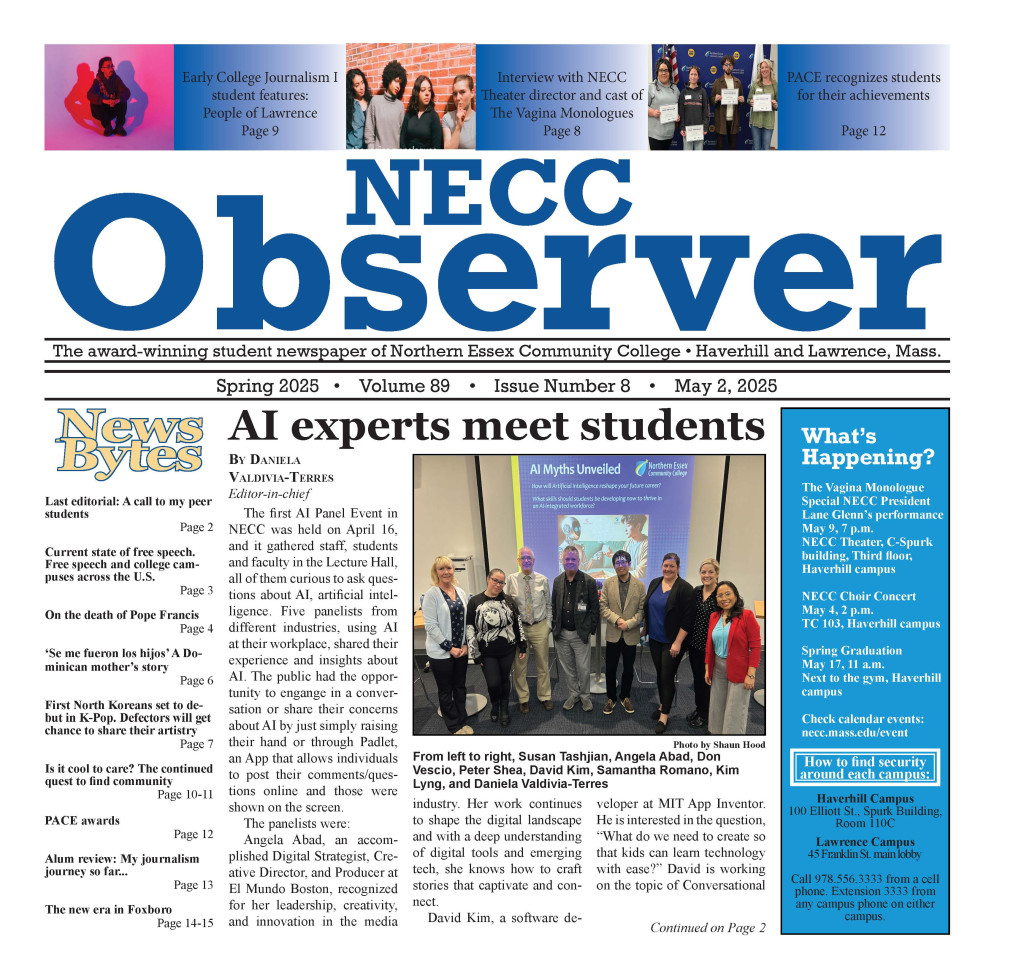As another Spring break passes and these fleeting moments of relaxation come to an end, I have found myself overwhelmed with assignments, a part-time job, and the stress of planning the future of my academic career.
In a recent conversation with friends — all of different educational backgrounds and life goals — I saw that I was not alone in this. I noticed a shared phenomenon that was unbound by our discrepancies: the feeling of the impending stress that comes with the final two months of the semester.
From communication majors to biology students, to undecided majors, no one was untouched by this burden.
One of these friends, NECC student Kia Dimakis, shares her experience. “Juggling four courses and my part-time job has been harder to do lately.”
Dimakis, a communications major, has found herself in a position similar to my own. “Even though I fight it every day, I procrastinate my work and fall behind; I feel hopeless at this point in the semester.”
She, like many of us, is someone who takes pride in academic excellence. When we fall behind, it’s hard to motivate ourselves to crawl out of the hole, even though we may have dug it ourselves. This creates a vicious cycle of discouragement and procrastination.
NECC Alum and current UMass Lowell student Ian Miller shares his experience with mid-semester burnout.
“I tried to have fun and rest this Spring break, but all I could think about was everything I had to do once I was back at school,” Miller said.
Miller will receive his bachelor’s degree this upcoming fall and has been juggling the responsibilities of completing this degree while also planning his enrollment into a master’s program.
“It feels like no matter how many days off I have, I can never take a break because there is always something that needs to get done,” he said.
When this conversation with my friends had ended, we were comforted by the idea of not being alone in this feeling; I remind myself that despite any difficult circumstances, I have done the best that I can, and will continue to do so.
Amid the stress, there are moments of clarity when we give ourselves the time to find peace and patience.
Dimakis reminds her fellow peers, “just focus on your goals; you’ll get there, even if you fall behind every once in a while.”
So, while we may all differ in circumstances and the severity of them, I urge you to remember the resources that are available to us. Not only are there academic coaches and counselors who will aid in your academic struggles or in constructing a schedule that works around your lifestyle, but we have each other to fall back on when we need help; all we have to do is reach out.
Resources:
https://www.necc.mass.edu/succeed/student-support-services/counseling-services/

